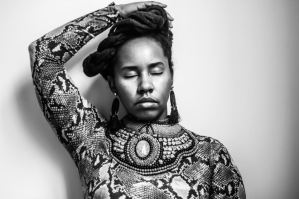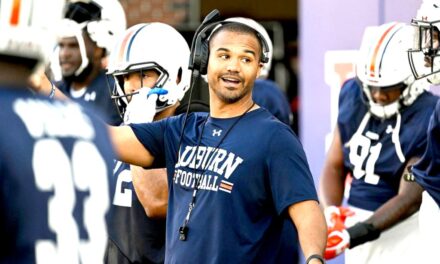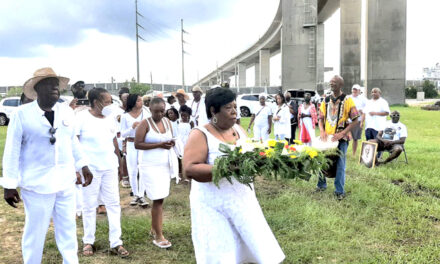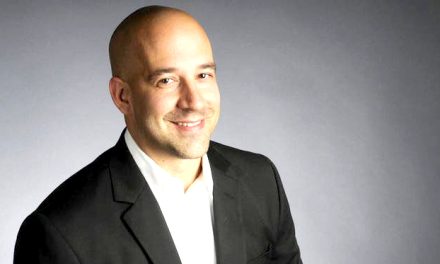
Dee Dwyer is a photographer who moves fluidly through creative and political spaces alike, capturing what remains of Washington D.C.’s distinctive Black, arts and culture. (Photo/Ziggy D)
By Nyame-Kye Kondo
Special to the AFRO
Photographers have always played an important role in documenting the happenings of their community. Capturing culture in action, photographers are able to act as historians, freezing experiences and traditions through the frame of a lens. One such photographer is Native Washingtonian, Dee Dwyer. “Anointed by the people to be the visual voice of the people,” Dwyer moves fluidly through creative and political spaces alike, capturing what remains of the city’s distinctive Black, arts and culture.
Raised in Southeast, D.C. Dwyer was educated throughout the city, but admits that she had a bit of a rough time in school. ¨I was a troubled teen growing up, because I didn’t have the arts. I jumped around high schools, wilding out, until I graduated from Cardozo High School in Northwest,” the photographer said.
While reflecting on the hardships of her youth, Dwyer also recognizes this as the time she began to develop her passion for photography. “I always used to see people take pictures at the GoGo booth. I would love seeing the joy that the photo booth would bring the community.¨
Allowing her happiness to turn into an amateur interest, Dwyer explained she remembers her earliest photographs.
“When I was 16, I used to go around taking pictures of people from different neighborhoods all around this city. I was broke, so I used to steal the disposable cameras and I would steal the photographs after they were developed too,” giggling to herself embarrassed. Dwyer admits that there was a positive that developed from this. “I would give the photos to people, so there are still people around who have originals of my earliest work and in a large way those photographs set the foundation for my approach to photography today.”
Ultimately attending a Florida based HBCU with intentions of working in Law, Dwyer’s intentions were genuine, but displaced.
“I wanted to become a criminal defense lawyer to free my people- free my friends from different neighborhoods that were locked up. I felt like I wanted to become their saviour and get them out. I started taking political science classes to accomplish this goal and realized I needed an artistic outlet.”
Deciding to study Filmmaking at the Art Institute of Miami, it was at this institution that Dwyer was able to start developing her interest in photography through a Dark room course.
“My first camera was a Canon Ae-1, I had to develop the film in the dark room, and I really loved that experience. I loved that you could freeze that one moment and analyze it.”
Laying the foundation for what would become a career, Dwyer finished school, but became a mother/wife and had to forgo her passion for a bit. It wasn’t until Dwyer began working on a film project based in Brazil with Filmmaker Briana. Monet, that she was able to get behind her camera again with a newfound purpose.
“During the review for the film, they would see my images, and it was during one of these sessions that someone suggested I use the same eye to capture my city.”
Allowing transitions to happen, Dwyer admits that the shift towards living in her purpose required her to, “divorce her husband and marry her photography.¨
Sometimes in Black and White, other times in vivid colors, Dwyer’s photographs are raw and personable. Reminiscent of Gordon Parks, and Van Der Zee, Dwyer is able to quietly capture moments in D.C. that would otherwise be missed.
A smiling Black child performing exuberantly in a parade, a Black man having a heated exchange with a stern faced police officer in full riot gear, the let out after the GoGo, bikers performing heroic stunts much to the chagrin of humored onlookers- all found in Dwyer’s work. Dwyer pulls inspiration from filmmaker Spike Lee and credits him for capturing the beauty of his community in Brooklyn.
“I am a huge fan of Spike Lee, I love that he represents Brooklyn, I love the stories he tells about his people, and I decided I wanted to do the same thing for Southeast.”
Dwyer’s camera has not just captured the Black community in Southeast, but throughout the whole city. From protests to celebrations, Dwyer’s photography is able to perfectly convey the energy of its subjects through the flick of the wrist and the speed of a shutter.
Help us Continue to tell OUR Story and join the AFRO family as a member – subscribers are now members! Join here!
The post The Visual voice for the people appeared first on AFRO American Newspapers .











